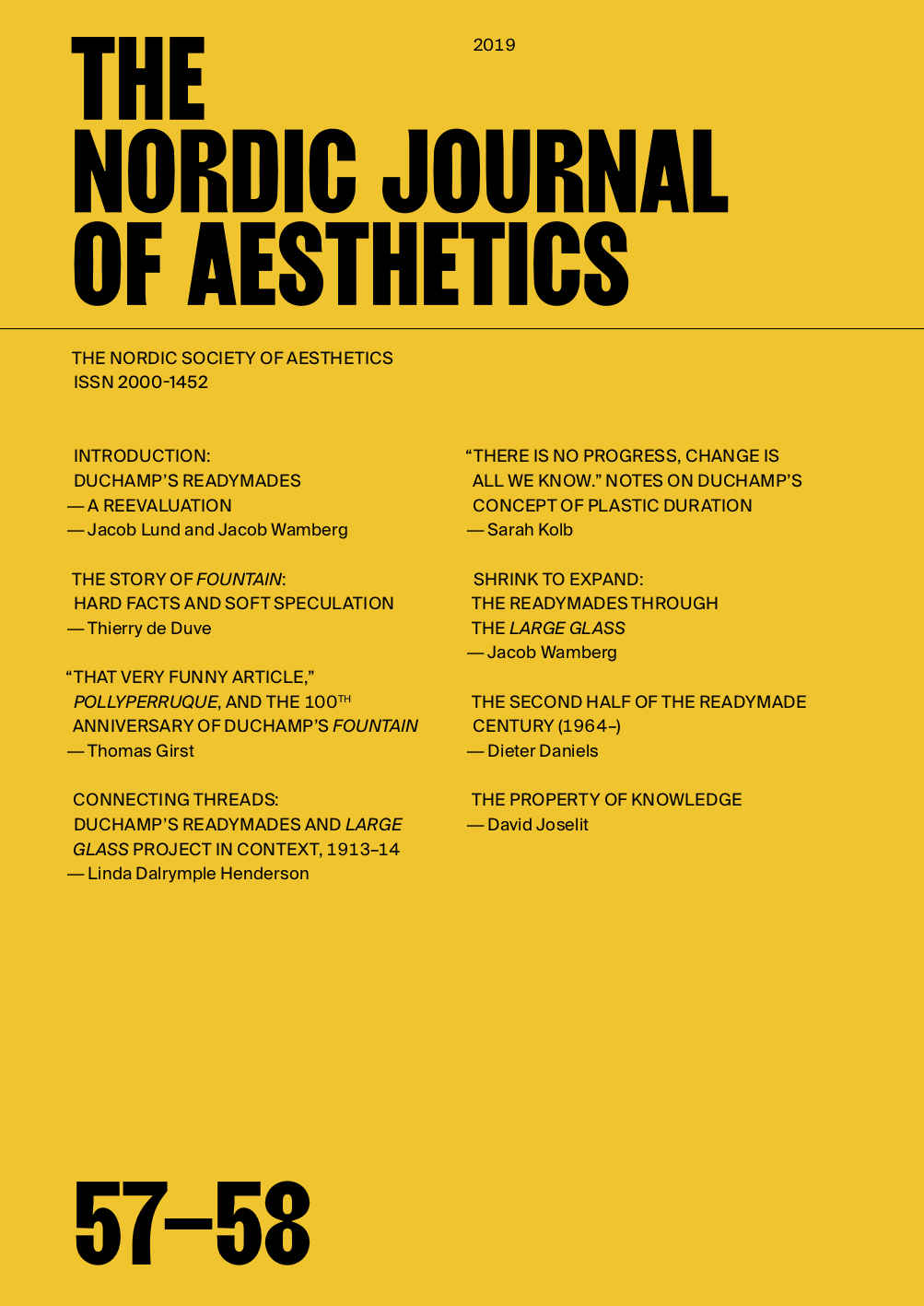THE PROPERTY OF KNOWLEDGE
DOI:
https://doi.org/10.7146/nja.v28i57-58.114854Keywords:
Marcel Duchamp, Readymade, Contemporary epistemology, Property, Global contemporary artAbstract
We can note three phases in the tradition of the readymade and appropriation since Duchamp’s Bicycle Wheel of 1913. First, they include early enactments in which the readymade posed an onto- logical challenge to artworks through the equation of commodity and art object. Second, practices in which readymades were de- ployed semantically as lexical elements within a sculpture, paint- ing, installation or projection. In a third phase, which most directly encompasses the global, the appropriation of objects, images, and other forms of content challenges sovereignty over the cultural and economic value linked to things that emerge from particular cultural properties ranging from Aboriginal painting in Australia to the ap- propriation of Mao’s cult of personality in 1990s China. This essay considers the most recent phase of the readymade in terms of its century-long history.
Downloads
Published
How to Cite
Issue
Section
License
Authors who publish with this journal agree to the following terms:
- Authors retain copyright and grant the journal right of first publication with the work simultaneously licensed under a Creative Commons Attribution License that allows others to share the work with an acknowledgement of the work's authorship and initial publication in this journal.
- Authors are able to enter into separate, additional contractual arrangements for the non-exclusive distribution of the journal's published version of the work (e.g., post it to an institutional repository or publish it in a book), with an acknowledgement of its initial publication in this journal.
- Authors are permitted and encouraged to post their work online (e.g., in institutional repositories or on their website) prior to and during the submission process, as it can lead to productive exchanges, as well as earlier and greater citation of published work (See The Effect of Open Access).




